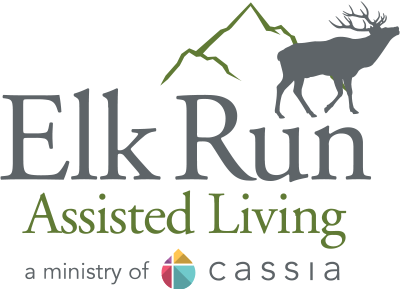An old friend once told me that the best tradition is someone else’s. He was just at the point of being pulled between families and being stuck with a menu that was not palatable. “No, cranberries do not have to come out of a can.” His sister had insisted that the lines of the tin can were very important. His words stuck in my mind as I pulled up to the Nordland Lutefisk supper on a windy Saturday night in late October.
Nordland is the church of my childhood and my ancestors. The altar was carved by my great-grandfather from Norway, using the wood that was meant for my great-grandmother’s bedroom set. When the old church burned, the wood was an easy donation the cause of the new church. The wood-working genetics passed down through the generations and the 97 year-old man, my father, who I was accompanying to this lutefisk dinner, spent his career working with wood. Every step of this sacred ground is about my heritage and tradition. These are very emotional times. My father is very old and everything is weighted with the question, “Will this be the last time?” At that moment our tradition was delivering to me waves of anticipated grief. As I maneuvered through the social hall, around the tables beautifully decorated with Norwegian flags, I thought of all the times before.
We used to wait in the sanctuary for our numbers to be called. Mom and Grandma were usually working in the kitchen so it would be the three of us with Dad. My Great-Aunts would drive out from the cities. The church was filled with neighbors and relatives. We would sit in silence because it was the sanctuary. Finally our numbers were called and we would make our way down the back stairway, through the swinging doors and into the real church basement that smelled terribly of the cooking fish. The church ladies were wearing aprons and guiding bowls heaped with mashed potatoes to the servers in the dining room. Only the elders were in charge of the fish, recognizing when it was done and before it fell apart in the boiling water. Grandma would be one of the trusted few.
At a young age I somehow connected that experience with heaven. It wasn’t because it was so pleasant but more because it was anticipated and had the quality of a grand finale, the swinging doors opening to bowls of steaming potatoes. I’m sure waiting for our number to be called had something to do with my distorted theology. On this windy October night it continued to remind me of heaven. All those elders in the kitchen were now gone and populated heaven.
My father is blind. He remembers people by the sound of their voice and thanked people for saying their name when they came to greet him. He could smell the lutefisk and waited for that first taste. This was the first time that I had to help my father eat that gelatinous fish, swimming in butter. There is one person older than him in the congregation. Many of the younger members do not really remember him during his active days. I felt like our family traditions were as tentative as the lutefisk balancing on the spoon.
When we left the church I wondered about this tradition. Will there be ways or reasons to continue? For this year, it took me back to that primary kitchen. I had one more year to hear Dad comment on the fish. He did teach me, years ago, how to make lefsa. I have the gravy stained church cookbooks and know that for the best results I should use Esther Jacobson’s Krumkaka recipe. Perhaps choice has nothing to do with tradition. Even if I do not observe the tradition, it will exist in the collective memory of people who have shared these times in my community and with my family. In time it will be a piece or aspect of the tradition that will represent the whole.
Nordland will not leave me. Sixty-two years ago, my father carried me in the front door of this church for my Baptism. We stood in front of the altar carved by my Great-Grandfather. My Great-Grandmother was watching from the pew. They all knew that life could not be navigated alone; it took a community and a loving God. Psalm 139 came to mind:
If I take the wings of morning,
And dwell in the uttermost parts of the sea
Even there shall thy hand lead me,
And thy right hand shall hold me.
The memory will fade. The geography will change. The image of my father reaching up and feeling for the door will retreat with the others, passing potatoes and guarding the lutefisk. However, every crumb, every taste, every action of faith will represent the whole and that will never leave me.
The author, Patty Crawford, is the Center Manager at Augustana Care Open Circle of Apple Valley. She has been a part of Augustana Care for over 40 years. Patty is also a sought-after public speaker on subjects of aging. She weaves her insight and research into meaningful presentations. Patty is a Master of Leadership graduate from Augsburg University.
